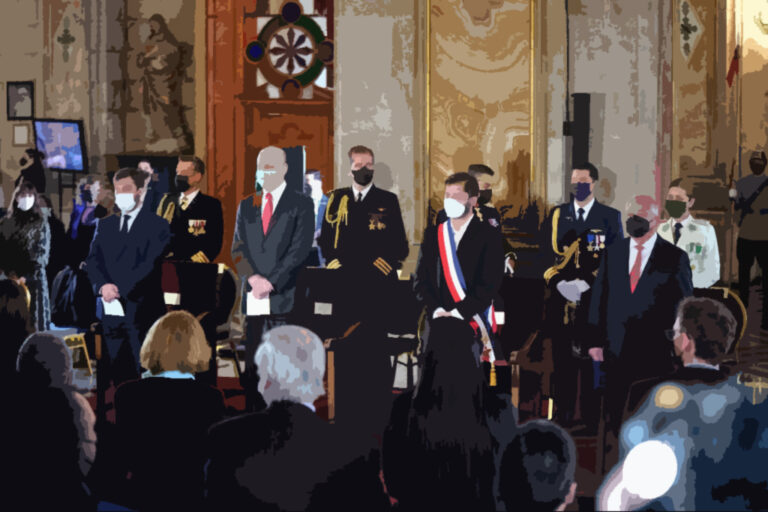The young leaders of Gabriel Boric’s government only know by hearsay or by reading about the administrations of a Frei Montalva, Salvador Allende and Augusto Pinochet himself. You need to be 60 or 70 years old to have been a direct witness to such an important period in our national history. Even less are they aware of the immense role played by the Christian churches in promoting such important events as the Agrarian Reform, the nationalisation of copper and the struggle against the civil-military dictatorship that lasted for 17 years. When institutions as important as the Vicariate of Solidarity were dedicated to defending the human rights violated by the de facto regime.
It is natural that actors such as Cardinal Raúl Silva Henríquez or the Lutheran pastor Helmut Frenz say very little to generations who have witnessed the decline of some of our religious creeds as a result of abuses committed by bishops, priests and pastors. Both in Chile and around the world.
It is natural, then, that acts such as the Tedeums seem to them like nineteenth-century liturgies, rather than ceremonies proper to our republican institutionality. In each of our Fiestas Patrias, these solemn acts are very dissonant in the midst of festivities increasingly marked by culinary excesses, excessive alcohol consumption and other nonsense that year after year claim many fatal victims. The least important thing for the millions of euphoric Chileans is to pay homage to the forgers of the homeland.
The indifference shown to the contribution of faith and the churches to the country’s important political events is thus regrettable. It is even worse when it comes from progressive sectors that do not know that, despite the credibility crisis of the ecclesiastical institutions, these bodies continue to have an enormous influence on the thinking and behaviour of citizens. They demonstrate a power of convocation and social influence that no political party or referent could dispute.
In this respect, one would only have to consider the massive attendance at Sunday Eucharist, as well as events related to marriage, death and so many other common manifestations of the population. It would not be strange to the results of the last plebiscite that the churches were reluctant to accept a constitutional proposal that contained paragraphs at odds with their precepts, such as those referring to abortion. These days, moreover, a prominent priest and philosopher has published a book that demonstrates the gravitating influence of Marian practices, which is in keeping with the fact that our Liberators have decreed the Virgin Mary as the great patron saint of Chile.
It may be almost an anecdote, but it was striking that the ministers of the new government only “promised” to comply with the Constitution and the laws at the time of their solemn oath, thus manifesting their null or lukewarm religious commitment, very different from what happened in the distant or even nearer past.
We know that there are several political operators who take into account the religiosity of the citizens and recommend their friendly candidates to have this national condition in their speeches and campaign acts, in order to gain support that can be very decisive in the electoral results. Years ago, we saw in Fidel Castro himself an important turnaround in his dealings with the Catholic Church afterwards, after many years in which it was wrongly assumed that the people were disaffected with the religious faith. The Pope’s own official visit to Havana and the two interviews given by the Cuban leader were evidence of this recognition, which won so much sympathy among the Cuban people and the whole world. This is also why revolutions such as the Sandinista, Salvadoran and other revolutions have highlighted so many priests and even martyrs who fought for change and social justice.
The leaders of the Chilean left who lived through Pinochet’s repression can testify how many of them owe their lives to the priests, pastors and believers who took them in and protected them at great risk. Just as there is talk of La Moneda having to define policy on a series of issues, it would be good to have the same in religious matters, recognising the role that churches can play in building the future. If the ideological concordance that exists between Christian faith and the objectives of social justice is assumed.
Something that the new political generations should also take into account is the estrangement, almost divorce, that has occurred between religious leaders and those who are reluctant to change, who now do everything possible to dissociate the religious denominations from the current rulers and their desire for change. All the while there is already a pathetic disaffection of socialists and so many leaders and rulers with the itinerary marked out by Allende himself and other avant-garde leaders of the world. Enchanted, as they can be seen, both here and elsewhere, with neoliberal policies, making the maintenance and enjoyment of power their fundamental objective.
With the evolution of the times and the need to review the relevance of certain events that have more pomp than substance, the first thing that should be questioned is, for example, the wasteful and absurd military parades in which honours are still paid to those who have pointed their weapons to attack our republican institutions once and several times, exercising terrorism and death against their own countrymen. Genuine heroes usually come from civility.












